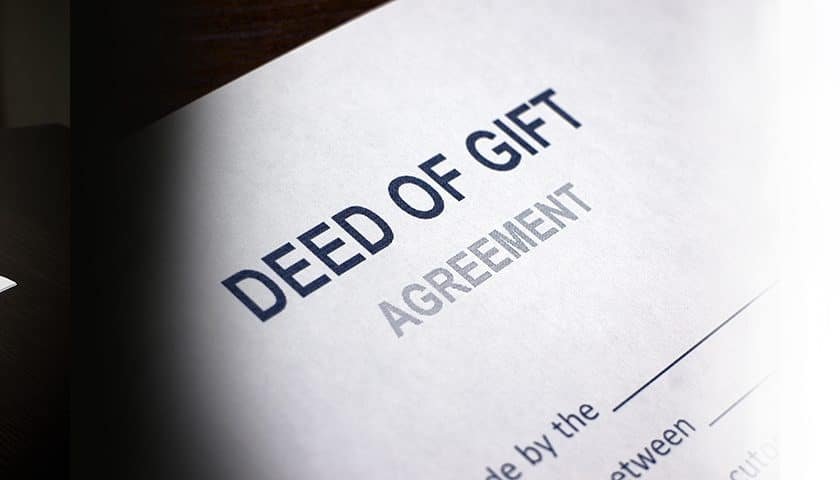A Gift Deed is a legal document elucidating the voluntary transfer of the property to someone
else without any monetary exchange. The property owner can handover it either to a person or
an institution, however, it should be accepted by the donee (recipient) during the lifetime of the
donor and should be registered under Section 122 of Property Transfer Act, 1882 with the
sub-registrar as per section 17 of the Registration Act, 1908.
Like a Sale Deed, A Gift Deed also comprises the details of the transferor and the recipient.
According to the provisions of Section 122 of the Transfer of Property Act, 1882, a gift can be in
the form of both movable or immovable property. A gift must be such that it is transferred
voluntarily and without any consideration.
Competence
Donor – Transferor of Property
To document a gift deed, the donor should be competent. According to the law, a donor should
not be a minor.
Donee – Recipient of Property
On the contrary, the recipient can be a minor with a natural guardian as a nominee, who shares
the onus of managing the property till the donee becomes an adult. Additionally, the
beneficiary should be alive, else the property will become null and void.
Key Aspects in a deed
A gift deed includes following details:
● Date and place of where the deed is documented
● Donor’s details (Name, Date of Birth, Father’s Name, and Address)
● Details of the donee (Name, Father’s name, Date of Birth and Relationship with the Donor)
● Relationship of donor and donee
● Elucidation of the property gifted
● Signatures of both- donor and donee
● Details of two witnesses present at the time of property transfer
● Signature of the witnesses
Process
i. Drafting of the Deed specifying all the particulars of the property and details of the donor and donee.
ii. Acceptance by the donee, when the donor is alive and voluntarily transfers the property. It can be validated by taking possession of the property.
iii. Registration of the transfer is carried out in the presence of two witnesses, usually. Only then the transfer is deemed to be valid and complete. It also involves payment of Stamp Duty and some registration fees, which varies from one state to another.
Revocation of Gift Deed
Once the gift deed is prepared, revocation is not possible unless a clause of revocation is added to the deed. Section 126 of TPA elucidates the situations when a gift deed can be revoked.
According to it, a deed can be revoked only when –
● There is a mutual consensus between the donor and the donee that the deed should be revoked.
● The property transfer event was just based on the will of the transferor and the recipient was unwilling to accept the asset.
● The condition is not illicit, repugnant and immoral to the estate created under the Gift.







